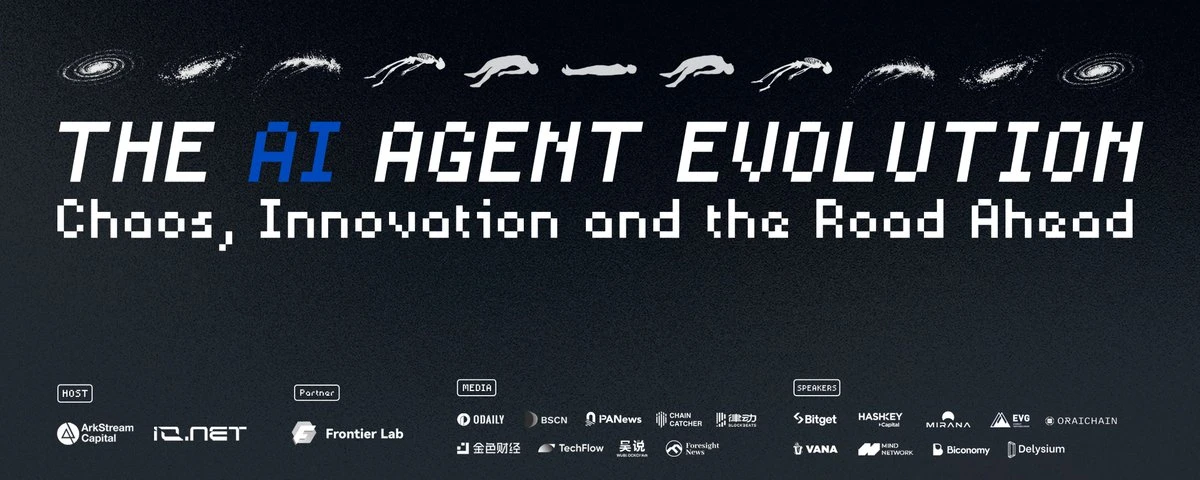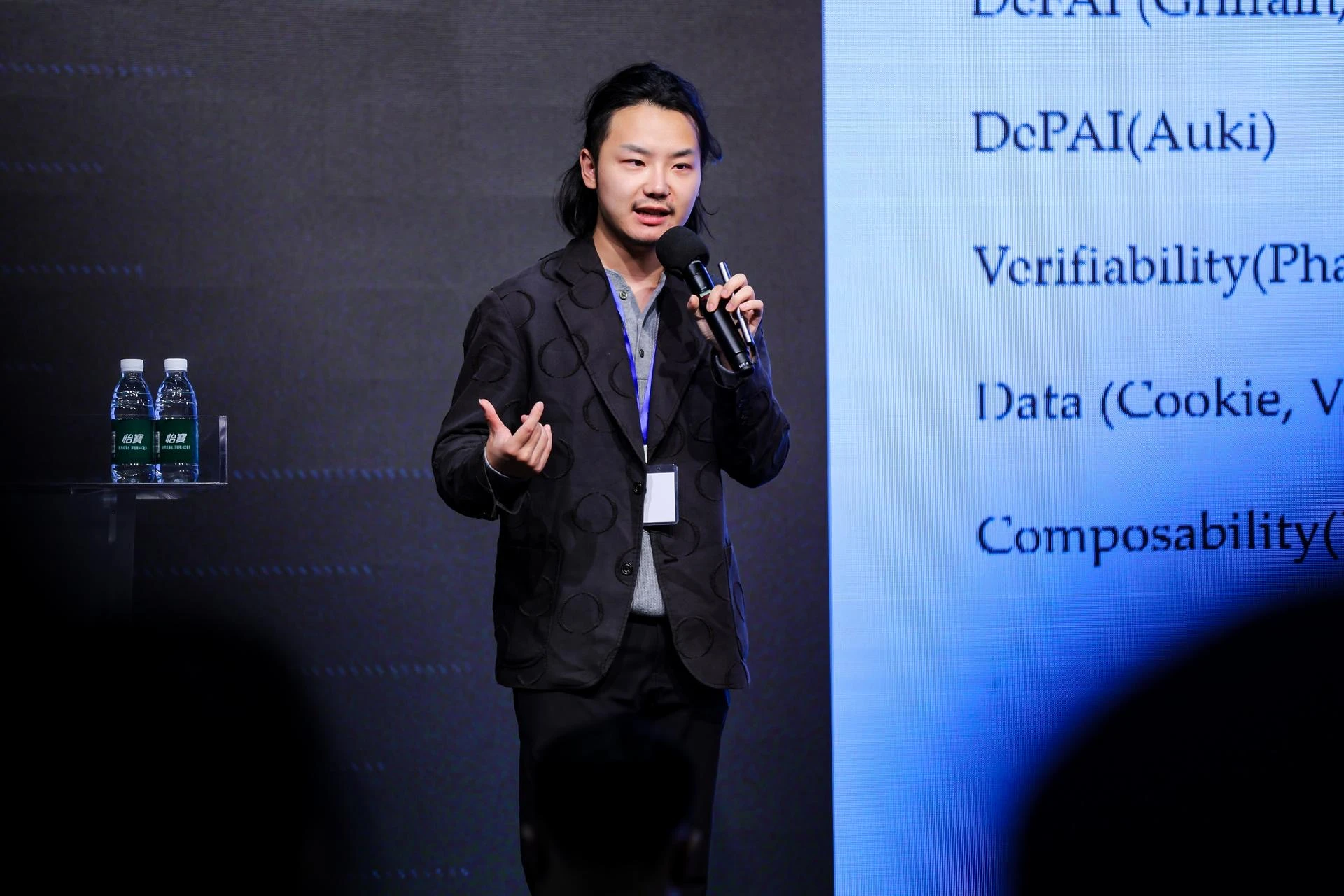On February 17, the event "THE AI AGENT EVOLUTION — Chaos, Innovation and the Road Ahead," co-hosted by ArkStream Capital and io.net, successfully concluded.
The event aimed to explore the future of AI agents and their impact on the cryptocurrency space. It brought together industry leaders, investors, and innovators to discuss the latest developments, challenges, and opportunities at the intersection of artificial intelligence and blockchain technology.

ArkStream Founding Partner Ye Su delivered the opening speech titled "What's the Next for AI Agent," emphasizing the significant growth and subsequent decline in the market value of AI agent projects — reaching a peak of $20 billion in January 2025, before dropping to around $7 billion; he discussed the impact of the new AI model DeepSeek developed in Hangzhou, which offers more efficient algorithms and significantly reduced training costs; and shared five key predictions for 2025, including the rise of AI-driven decentralized finance, decentralized physical AI agents (DePAI), verifiability achieved through blockchain, the importance of decentralized data infrastructure, and the need for interoperability between blockchain networks.

Below is a summary of Ye Su's speech.
The Rise of AI Agents and Market Dynamics
The AI agent ecosystem has experienced rapid growth and volatility. At the beginning of 2025, driven by innovations like GOAT, the industry's market value peaked at $20 billion. However, the market quickly retraced to around $7 billion, reflecting the coexistence of speculative hype and long-term potential.
Key driving factors include:
Consumer-level innovation: Projects like AIXBT and Virtuals demonstrate the capabilities of AI agents in automating tasks, providing financial advice, and even generating content, highlighting their role beyond simple chatbots.
Web3 integration: The verifiable computation and tokenized incentives of blockchain are crucial for ensuring the transparency and trust of AI agent operations, filling a gap that traditional Web2 systems cannot.
DeepSeek: A Catalyst for AI Democratization
The speech highlighted DeepSeek, a groundbreaking open-source AI model developed by a company in Hangzhou, with training costs as low as $5.5 million — just a fraction of traditional large language models (LLMs) — DeepSeek embodies the shift towards affordable, decentralized AI infrastructure. Its lightweight design allows for deployment on personal devices, aligning with trends in edge computing and Internet of Things (IoT) integration.
The Role of Web3 in the Autonomous AI Ecosystem
Ye Su also emphasized the three-layer framework of AI agents in Web3:
Reasoning layer: Driven by large language models (LLMs) like DeepSeek, supporting decision-making and problem-solving.
Execution layer: Blockchain-based AI behavior verification, ensuring immutable proof of work (e.g., Elon XAI's "Proof of Everything" concept).
Incentive layer: Tokenized economic rewards for cross-platform collaboration of AI agents, addressing compatibility challenges in multi-agent systems.
Five Predictions for AI Agents in 2025
DeFAI: AI agents will autonomously manage cryptocurrency investments, yield management, and risk assessment, mimicking human-level financial decision-making.
Decentralized Physical AI (DePAI): Agents will connect the digital and physical worlds, controlling IoT devices (like smart homes) and executing real-world tasks through blockchain security protocols.
Verifiability: Projects like Phala and Space and Time will enable transparent verification of AI outputs, which is crucial for regulatory compliance and user trust.
Data as Currency: Decentralized data markets (like Vana, Cookie) will power AI training, ensuring contributor privacy and fair monetization.
Composability: Unified protocols will allow AI agents to operate seamlessly across blockchain networks, addressing the fragmentation issues of the current ecosystem.
5. Challenges and Long-term Vision
Despite the enthusiasm for AI agents, Ye Su acknowledged some developmental hurdles in his speech:
Ethical risks: Ensuring AI agents avoid bias, protect privacy, and align with human values requires a robust regulatory framework.
Market maturity: Current projects are still in experimental stages, with many struggling to demonstrate sustainable use cases beyond speculative trading.
In conclusion, Ye Su summarized with an optimistic outlook: "AI agents are not just tools — they are the cornerstone of a new internet, where value, intelligence, and autonomy intertwine. The infrastructure of Web3 will unleash their full potential, creating a future of seamless collaboration between humans and agents."
免责声明:本文章仅代表作者个人观点,不代表本平台的立场和观点。本文章仅供信息分享,不构成对任何人的任何投资建议。用户与作者之间的任何争议,与本平台无关。如网页中刊载的文章或图片涉及侵权,请提供相关的权利证明和身份证明发送邮件到support@aicoin.com,本平台相关工作人员将会进行核查。



